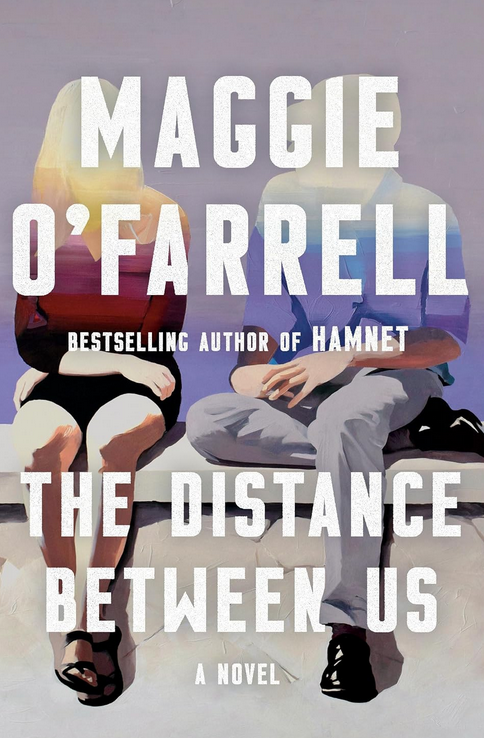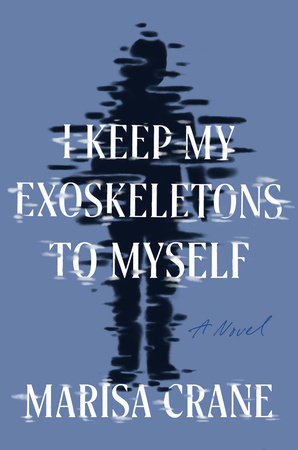The Distance Between Us: A Novel
- By Maggie O’Farrell
- Vintage
- 336 pp.
- Reviewed by Jennifer Bort Yacovissi
- July 26, 2024
An unnecessary romance muddies an otherwise smart, stirring tale.

You might have read Maggie O’Farrell’s The Distance Between Us when it was first published in 2013. This recent paperback edition from Vintage Books is set to capture those who’ve lately come to O’Farrell after an introduction to her via the bestselling historical-fiction novels Hamnet and The Marriage Portrait.
Those newbies might be surprised to find that Distance, like a large portion of the O’Farrell oeuvre, is a contemporary novel. Lacking the delicious worldbuilding needed to immerse readers in the trappings of Elizabethan England or a 14th-century Italian principality, it offers instead a pared-down version of storytelling featuring workaday people living lives that look and feel a lot like ours.
Still, this is Maggie O’Farrell, whose prose spins a captivating tale in any century. After all, it’s hard to resist a writer who gives us descriptions such as, “The air swings with incense, firecracker smoke, and the amniotic salinity of the harbor.”
Distance presents us with two parallel storylines. The first features Jake, the product of a three-week motorcycle adventure between his Welsh mother, Caroline, and his Scottish father, who picked Caroline up in Islamabad and dropped her off as they parted ways in Delhi. Jake has lived his entire life in Hong Kong and is fully at home with its people and culture, though he doesn’t look the part.
The second thread focuses on Stella, the daughter of a Scottish father and an Italian mother, Francesca. Stella’s tightly knit, extended maternal family still speaks Italian at home and in their cafe outside Edinburgh. Both Jake and Stella are used to being outsiders in their native homelands.
In the quick jump-cuts of an introductory part I, we meet many of the main characters, including Stella’s older sister, Nina, whom we are primed to dislike. And we are thrust into dual inciting incidents.
Jake’s immediate predicament is straightforward: His expat girlfriend, Mel, who is far more smitten with him than he is with her, is grievously hurt in a Chinese New Year stampede that kills her best friend. The doctors are certain Mel won’t live through the night, so when she tells Jake she can’t bear to die without marrying him, he does the decent thing and has a clergyman say the words. Of course, she doesn’t die, and so he must accompany her back to her parents’ home in England and stand by her as she recovers, giving the misery of his situation time to sink in.
Stella’s challenges are less clear. She’s in broadcasting and travels constantly, but one day, on her walk to her London office, she sees a man who resembles someone else, and the encounter throws her into a panic. She hails a cab and disappears. When next she emerges, Stella is working at a high-end resort hotel in the wilds of northern Scotland.
A swirl of non-chronological snippets starts to piece together how we got here. Nina nearly died of a brain infection in primary school and had to relearn virtually everything; the cruelties this heaps upon both sisters in the scrum of the classroom and schoolyard becomes an inescapable shadow throughout their lives and changes their inseparability from a natural inclination into a forced shackling. From our perspective, it feels like Nina is holding Stella hostage emotionally. But this isn’t what’s at the heart of Stella’s distress.
(As an aside, one of my least favorite plot devices is a central mystery that could be solved if only we heard the protagonist think one brief sentence, even just a few jumbled words. O’Farrell is hardly alone in trotting out such a trick, but there’s so much depth to this story that it’s unnecessary.)
While Stella’s narrative is unfolding, Jake decides to use his time in the U.K. to track down his Scottish father. This leads to the inevitable meet-cute with Stella.
Jake’s backstory might endear him to readers, but his self-absorbed actions do not — in particular, an argument that leads him to physically pick up Stella, haul her to an empty room, and lock himself in with her. Given that we still don’t know what keeps triggering her, this use of physical force ought to be a deal-breaker. But it is not. The chemical attraction between them is too strong, though they are very light on actual conversation.
Here’s the rub: O’Farrell has developed a full-bodied exploration of cultural and family dynamics and of how much of our relationships are filled with missed connections and gaps in understanding that reverberate through generations, but it’s wrapped in this outer layer of facile romance.
Strangely, the meat of the story isn’t Jake and Stella getting together. Instead, it’s the backstory of Jake’s grandmother Mair, which leads to her daughter Caroline’s rebellion, that carries more weight. Or perhaps it’s the journey that led Stella’s grandparents from a tiny village in Italy to the outskirts of Edinburgh.
On the other hand, maybe it’s Caroline thinking “about that single, singular, single-minded spermatozoon propelling itself through her…It seems mad, perverse, that something as momentous as the beginning of her son could go unheard, unfelt…You’d think you’d at least hear the moment of impact — a boom, that collision.”
Or possibly, it’s Francesca feeling that she knows who her daughter Nina is, even as her other daughter, Stella, has always been a mystery, while we grasp that it’s really only Francesca’s best friend, Evie, who truly sees and understands the girls. Here, distance — being outside the family — confers clarity.
That a story with real depth — written more than a decade ago — is papered over with a frustratingly shallow romance just shows how much writers can grow as they continue to perfect their craft. Rip through the unnecessary paper cluttering The Distance Between Us and enjoy its underlying complexity.
Jennifer Bort Yacovissi’s debut novel, Up the Hill to Home, tells the story of four generations of a family in Washington, DC, from the Civil War to the Great Depression. Her short fiction has appeared in Gargoyle and Pen-in-Hand. Jenny reviews regularly for the Independent and serves on its board of directors as president. She has served as chair or program director of the Washington Writers Conference since 2017, and for several recent years was president of the Annapolis chapter of the Maryland Writers’ Association. Stop by Jenny’s website for a collection of her reviews and columns, and follow her on Twitter/X at @jbyacovissi.

